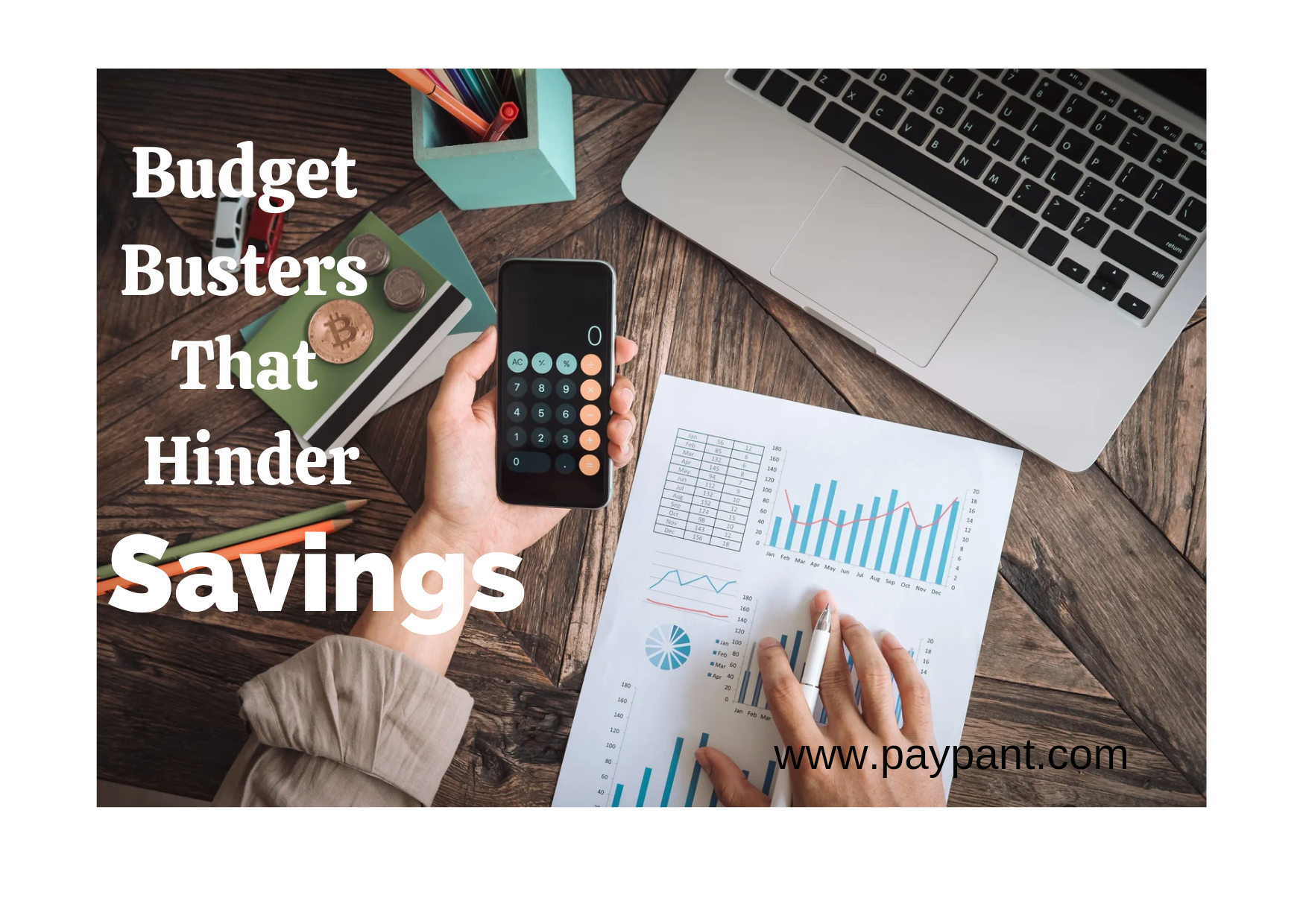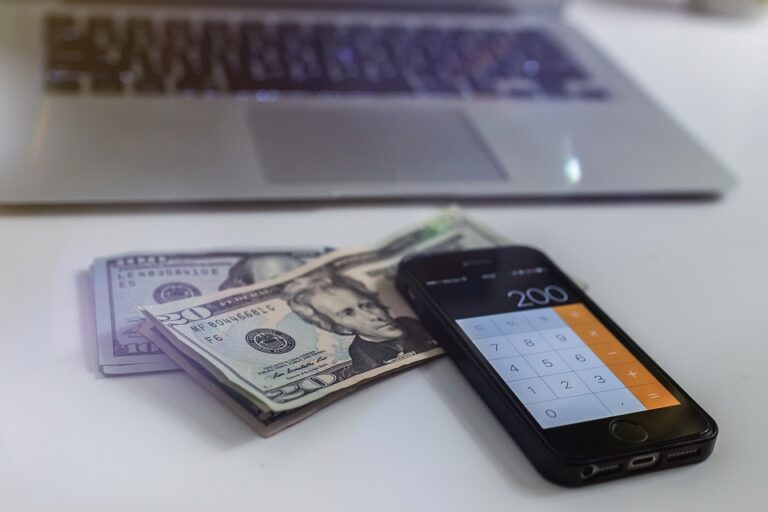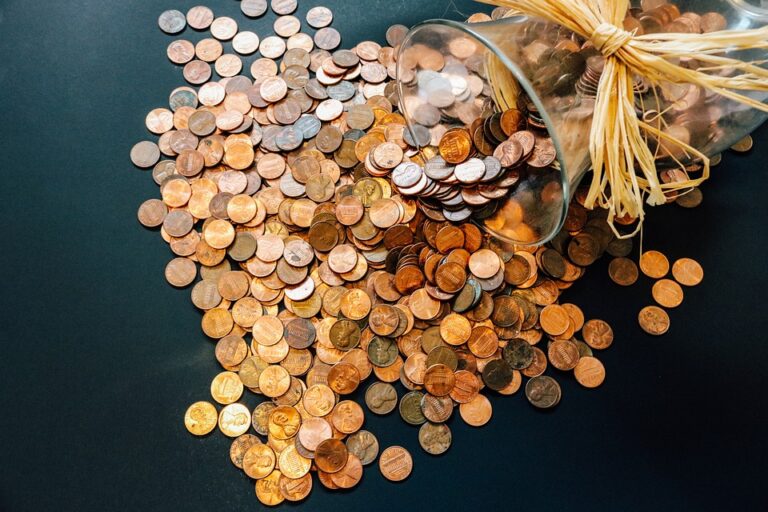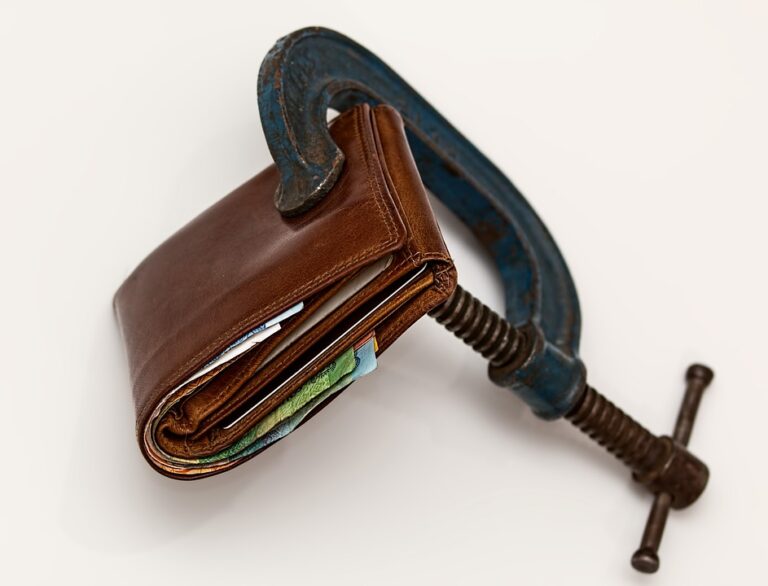Last updated Mar. 12, 2023 by Peter Jakes
If you want to save more money or make budgeting more fun, here are the budget busters to avoid. Instead of being stagnant with budgeting, the timeless money hacks we explained will help you stay within your budget if you control the budget busters listed. Paypant.com have listed the 30 Budget busters that will hinder your savings and stagnate your financial goals.
When you’re trying to set up a budget or make room in your budget for more money, it can be hard to cut certain expenses. It’s easy to think that those items on your spending list is necessary for you to live.
Due to your money mindset, you can get into bad money habits with your savings with these budget busters. A lot of people have trouble cutting these budget busters. Rather than cut it abruptly, find cheaper ways to do some of the things that are most important to you. This will help you save money and still do the things you like. For instance, you might want to do some of these things with the extra money you save:
Before you buy that $5 latte or a new shirt, you need to read this: Americans’ average personal savings rate dropped in the recent years. This is the lowest level since the early 2000s. Also, the U.S. Commerce Department predicts the savings rate of Americans to drop below 1% by the end of this year. Again, it will be the lowest savings rate since the Great Depression.
Related: Survey: Half of Americans Don’t Have $250 to Spare (And Why You Should Learn to Save)
Money experts at the Consumer Federation of America say that the rise in impulse purchases is to blame for the drop in the average amount of money people save. You may ask, “What is a budget buster?”
What Is a Budget Buster?

A budget buster is any expense that exceeds your budget or places undue strain on your financial situation. Budget busters come in many kinds and sizes, from impulse purchases to that drive-through on your way home from work.
We’ve produced a list of the 30 worst budget offenders you should avoid if you want to save money on this post.
Why You Should Maintain a Budget
One of the best things you can do to manage your money is to have a fixed budget. It’s a good thing because it will help you figure out how much money you need to spend on each category or expense in your home.
By spending a set amount on groceries and entertainment, for example, you will be able to save more money and still have some leftovers in case of financial emergency. This shows that making and sticking to a budget can help your money in the long run, no matter what age you are.
If you don’t know about budget busters, you might have spent too much on things you didn’t need because you thought they were just average monthly bills. But if you set aside a certain amount each month for each category, you will be able to stick to your budget and not spend more than you planned.
Why You Need Budget Planner
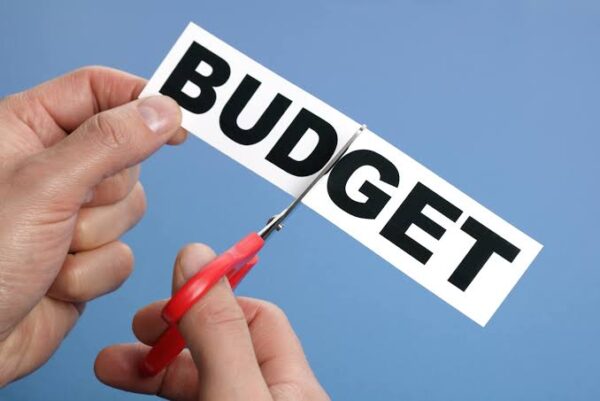
Most people believe that creating a budget is a tedious task. However, all you need are simple worksheets, spreadsheets, or, even better, apps to track how much money you have left at the end of each week.
Nowadays, most people can create budgets using apps or spreadsheets. It also informs you if your expenditure has exceeded your income. If your income exceeds your expenses, you could put the surplus money into savings to be used for another investment.
30 Budget Busters That Will Hinder Your Savings
Here are 30 things that can limit your ability to save money.
1. Living In a Place You Can’t Afford
(Buster: Housing takes 38% of your monthly income)
Living in a place you can’t afford or with higher than your average income can be your budget buster. On the other hand, housing costs that are too high are one of the biggest (and most painful) things that can break the budget.
This can mean anything from paying too much in rent to having a mortgage payment that is too high. Housing choices should be based on need and ability to pay, not on pressure from inside or outside.
When your mortgage or rent costs more than 25% of your monthly income, it can be hard to pay all your other bills. So make a budget before you get a mortgage.
You should not just take whatever the bank is willing to give you as a loan for a home. Instead, you should carefully figure out how much home you can afford. It is better to buy a home that you can afford but isn’t your dream home than to buy it but not be able to pay for it.
If you live where the cost of living is high, your rent may also be very high. You can cut this cost if you live with a roommate or a little further out of town or in the suburbs.
No matter what, if your housing costs take up a big chunk of your monthly budget, you might want to consider moving somewhere cheaper.
2. Online Shopping

(Buster: Online shopping takes about 23% of your net spendable income)
Everyone knows the convenience of online shopping. However, uncontrolled online shopping can bust your budget and hinder your savings plan.
With just a few clicks, you can buy anything you want and have it sent right to your door. But this ease of use costs you money and makes it harder to stick to your plans.
It’s easy to get caught up in the moment when you’re online shopping and spend more than you planned. So, if you want to save money, the best thing is not to shop online. If you have to buy something, just put it in your budget and don’t exceed your limit.
Your shopping habits have a significant effect on how much money you spend. So one of the most important things you can do is to go to stores less often. This is true for everything, from buying clothes to buying food.
Read 10 Best Money Saving Apps for Shopping & Groceries In 2022 (Reach Your Goals!)
To manage this budget buster, take shopping apps off your phone and unsubscribe from online stores’ emails. Then, before you buy something, try writing down what it is and how much it costs.
Then, please wait 48 hours before you buy it or anything else in your shopping cart. This way, you can ensure it fits your budget and lifestyle.
If you forget about it two days later, you likely didn’t need the item but just wanted something to make you feel better at the time.
3. Buying Unnecessaries In Bulk
Buying bulk can be a budget buster, just like spending money on sales. Getting a lower price “per unit” when you buy more than you need is hard to pass up. But at the end of the day, you still spend more money than if you had just bought what you needed.
You should only buy things in bulk if you know you’ll use them and if you have enough money.
Often, you can buy things like toilet paper, soap, butter, and coffee in large quantities. Since you use some of these items frequently, it makes sense to save up over a couple of months and buy them in bulk.
But buying a gallon of pickles or three bottles of ketchup is not advisable just because you get more for your money. Significantly when some of those items’ quality reduces with time.
Even though the price “per unit” is better, the total cost makes it hard for you to stay within your monthly budget.
4. Eating Out

Costs can add up fast when you eat out, and constantly patronizing restaurants can bust your budget and hinder your savings. However, if you like to eat out because you want good, freshly made food, you can save money by learning how to make the same things at home.
If you go out to eat because you don’t have enough time to cook, try cooking on the weekend and making meals to put in the freezer.
Stop going out to eat, and you’ll save a lot of money. If you stop eating out, you can save more than $50 a week, even more if you are married or have kids.
Don’t miss this: 40+ Best Fast Food Apps With Free Food (Find Restaurant Apps)
Eating: There are two reasons why eating out can break your budget. Foremost, it usually costs more than cooking at home. Second, spending too much is easy when you don’t have to make your food.
A bottle of water costs $1.50. So, buying one bottle of water daily will cost you about $540 over a year. In the long run, this purchase will cost you and the environment.
You shouldn’t eat out more than once a week to save money. And when you go out to eat, don’t spend more than you had planned.
5. Monthly Subscriptions
Monthly subscriptions can be a great way to save money on the things you want or need. But if you aren’t careful, they can quickly burst your budget.
Take an inventory of your monthly subscriptions, so you don’t spend too much on them. Then, get rid of any that you no longer need or are costing you money.
See it this way: if you cancel $83.33 worth of monthly subscriptions, you can save $1,000 a year.
Check out: 4 Legitimate Ways to Get Free Netflix
6. Entertainment Costs
Whether you like to go to the opera, watch a lot of sports, or play video games, your entertainment costs can add up quickly and burst your budget. So when you are in debt or money is tight, this is an area where you need to be willing to cut back.
Instead of giving you gifts, ask family members to give you gift cards for tickets or games and cut back on how much you spend instead of going without. For example, this year, instead of going to every home game, you could go to one and watch the rest from home.
You could buy only one game every few months and rent the rest. This method should help you save some money. You might want to look for things to do that don’t cost much money.
7. Expensive Vacations

Vacations are a lot of fun, but you shouldn’t spend a lot of money on them every year if you have a lot of debt or are struggling to make ends meet.
You can plan shorter trips that cost less money, like camping or trips to places you can drive to. If you don’t have any debt and are saving for retirement, you can go on any kind of vacation you want. Just make sure to pay for it in cash.
Using a credit card to pay for your travel costs can leave you with a lot of debt and financial regret when you get back home.
To avoid this, save up for your dream vacation and pay for it in cash. Paypant.com recommends you save money and pay for all your travel costs with a debit card. It will help you stay out of debt, spend only what you can afford, and hopefully keep your travel budget.
8. Gym Memberships
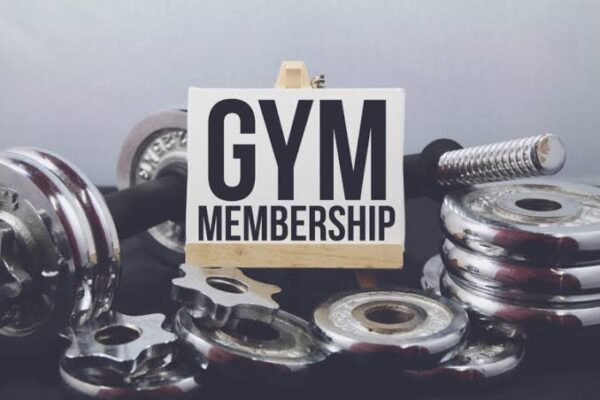
If you pay for a gym membership but don’t go very often, you’re throwing away a lot of money. To be clear, we are not saying everyone should stop going to the gym.
However, going to the gym often could be one of the most important things you spend money on. After all, good health can’t be bought.
If you don’t use your gym membership, it costs $40 a month, which adds up to $480 a year. So use the membership or get rid of it.
But if you only go once or twice a month, you might be better off just working out at home.
Related: Make money exercising: Top 25 websites that pay you to exercise
If you need help, there are a lot of great workout programs and videos that don’t cost anything that you can find online. But, of course, you could also go for a run, do some push-ups and crunches, and you wouldn’t have to pay anything.
9. Cable Television
Cable T.V. can be a big budget-buster because it costs anywhere from $60 to $100 per month to subscribe. So you can save a lot of money every year by getting rid of your cable T.V. bill.
You can save between $720 and $1200 a year by removing your cable. Then, if you still want to see the latest T.V. shows, you can watch them over the Internet with Hulu or a similar service. Saving on cable television is easy to save money; once you cut the cable, you may not miss it.
10. Buying the ‘Latest and Greatest’ of Items
Are you a gadget junkie? You might feel like you have to have the newest iPhone or tablet. Unfortunately, these kinds of spending sprees are bad for your money. You’d often be better off buying something used or fixed up.
Buying used items is true even for big purchases like homes. We’ve already said that older homes are often better built than new ones. But if something old makes you nervous, you might want to buy something almost new:
If you like building something from scratch, remember that an existing home doesn’t have to be 40-50 years old. If you’re willing to be the second or third owner, you might be able to find an energy-efficient home with new features for less money.
11. Impulsive Spending
It’s easy to go to the store for just a few things and spend $100 or more. So, discipline comes into play when you are on a Budget.
For instance, use a meal planner so you don’t just buy whatever you want at the time instead of what you need. And don’t go to the store when you’re hungry, or you’ll be tempted to buy everything that looks good.
Try to get all your groceries in one big trip once a week, and always shop with a list. Try to limit how often you go shopping, and if you don’t have enough money to buy something, don’t go shopping for it.
Another trick is to pay for these things with cash. Leave your debit and credit cards at home for this to work.
12. Paying For Insurance You Don’t Need
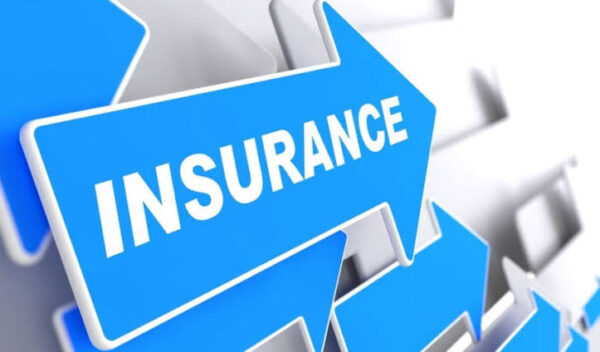
Paying for insurance is often overlooked because many think the more insurance, the better. But certain forms of insurance are just not necessary for most people and can lead you to spend unnecessarily.
5 Insurance Products That are Budget Busters
● Identity Theft Insurance
If your credit card already has protections against fraud built in. Most credit cards, like the Citi® Double Cash Card, let you get cash back.
● Children’s Life Insurance
As most children don’t have anything to protect. Most child life insurance policies have a savings feature called “cash value” that can be used to pay for college or a down payment on a new home. However, the fees are higher than the rate of return, so parents should put their money elsewhere.
More importantly, open a 529 savings account or make sure you have an emergency fund to cover your child’s costs.
● Rental car Insurance
If your typical car insurance has coverage that extends to a rental car, it may be a budget buster going ahead with the insurance.
● Collision Insurance
Suppose your car is old and doesn’t have much value. Then, depending on your deductible and the damage, collision coverage on your insurance policy might not make sense.
● Travel Insurance
If you book your trip with a credit card that already has travel insurance, you won’t need to buy it. Most travel credit cards, like the popular Chase Sapphire Preferred® Card and Chase Sapphire Reserve®, cover trip cancellation and lost luggage. Check with your card issuer to see if this is the case.
Related: Whole Life vs. Universal Life Insurance: Best Insurance for investing?
13. Alcohol
Another typical budget buster is alcohol. Whether you buy drinks to drink at home or go out to bars, alcohol can hurt your monthly budget.
After a few drinks, it’s easy to let your guard down when it comes to money and start spending money you shouldn’t. But alcohol is one of the sneakiest ways to spend more than you have.
Prices for drinks vary depending on where you go to drink. On average, a beer costs $5, including the tip. Bankrate says buying two beers daily can cost you $3,650 a year. But, of course, if you buy a round of drinks for your friends, the price will only go up.
The best way to deal with this is to limit yourself to a certain amount of alcohol each month. This limit should cover both drinking out and buying alcohol at the store.
You’d be surprised at how much your budget can improve if you set clear limits on how much you spend on alcohol.
14. Car Expenses
We’ve already talked about car payments, but even if you own your car outright, there are still several costs that can quickly add up and eat into your budget. When you own and drive a car, many things, like gas, maintenance, repairs, and insurance, can cost money.
About $58 is the average price for basic auto detailing. Not bad if you only do it once in a while. But it will cost you $348 a year to have your car detailed every two months.
And if you aren’t careful, these costs can add up quickly. So, if you want to save money, you should reduce your car costs. If you can, take the bus, share a ride, or ride your bike. And make sure that things like insurance and repairs are the best deal you can get.
15. Over-indulging Your Kids
One of the most common budget busters is overspending on your kids. When you’re trying to take care of your kids, spending too much on things like clothes, toys, activities, and extracurriculars are easy.
This is tough to figure out because every parent wants their child to have the best life possible. But just because we want our kids to have a great life doesn’t mean we have to go broke and put ourselves in a challenging financial situation. The opposite is true.
By setting some limits in this area, you can save more money and become more financially stable, which is just as important, if not more important, for your children’s well-being.
16. Expensive Birthday Presents

Holidays and birthdays can cost a lot of money, and we celebrate at different times of the year. Splurging on expensive birthday gifts all the time is a sure budget buster that will hinder your savings. In addition, if everyone in your family expects you to give them gifts, the cost can add up quickly.
You can give fewer gifts or try to make them yourself. You can also shop all year long to find sales. You might also want to talk to your family about drawing names at Christmas. You could also shop throughout the year for less expensive gifts.
17. Credit Card Debt
Credit card debt is one of the biggest budget busters hindering your savings. Not only do credit cards have high-interest rates, but it’s easy to let your spending get out of hand if you’re not careful.
Costs of Interest on Credit Card Bills – Most Americans owe about $6,600 on their credit cards. The rate tables on Bankrate.com show that the average fixed interest rate is 13.44 percent. If you only pay the minimum amount each month, it will take you 21 years to pay off your debt.
If you owe money on your credit cards, you should pay it off as soon as possible.
Also, you can always use a debit card or cash instead of a credit card if you don’t want credit card debt to break your budget. After all, you’ll never have to worry about credit card debt if you never use a credit card to make a purchase.
18. Emergencies
An unexpected medical payment or car repair can devastate anyone’s finances. The simplest method to address this is to create an emergency fund to meet these unforeseen costs.
Furthermore, if your budget for auto repairs or medical expenses leaves unused cash to roll over each month, you will accumulate sinking funds to meet the costs of these expenses over time. Planning ahead of time will help you manage the expenditures of an emergency.
19. Buying a New Car
Every year, millions of new cars are bought, but few people can pay cash for them. But not being able to spend some money on a new car can also mean you can’t afford it. Even if you can pay the payment, that doesn’t mean you can pay for the vehicle.
Even if you’re not buying a car, paying off your car is a budget buster, even though it can free up a lot of cash in your budget. To buy a car, you may need to borrow money. Buying used is one way to save money. In addition, you can keep your car payments low and easier to handle if you look for deals.
Related: To Buy or Lease a Car: Which Is Cheaper?
In the meantime, save a little bit each month to pay for your next car. If you do this, you’ll find that you can save money on the interest for the car loan.
How Does Buying a New Car Burst my Budget?
Also, when you borrow money to buy a car, you pay interest on an asset that is losing value. This makes the difference between your price and the car’s worth more significant. Worse, many people trade in their vehicles every two or three years and lose money every time.
You may make big holes in your budget when you have to take out a loan to buy a car. Especially you go for a large SUV? These cars cost a lot to buy, insure, and run. If you don’t need an SUV for your job or pull a boat or trailer, buying one might not be a good idea.
If you need to buy a car and borrow money, think about buying one that uses less gas and costs less to insure and maintain. Cars are expensive, and if you buy more than you need, you might waste money that you could have saved or used to pay off debt.
20. Living Paycheck to Paycheck
June 2021 saw 9.4% of U.S. households saving money on their own. Many people may live from paycheck to paycheck, and an unexpected problem can quickly become a disaster if you aren’t ready.
Overspending over time puts people in a dangerous situation where they need every dollar they make, and one missed paycheck would be terrible. You don’t want to be in this situation when an economic recession hits. If this happens, you won’t have much to choose from.
Related: Stop living from paycheck to paycheck; see this 40+ of the Best Weekend Jobs to Make Extra Money in 2022
Many financial planners will tell you to keep three months’ expenses in an account you can get to quickly. However, if you lose your job or the economy changes, your savings could run out, and you could end up in a cycle of borrowing money to pay off debt. Having a cushion of three months could mean the difference between keeping your house and losing it.
21. Gambling

There are a lot of ways that gambling can be a budget buster that can hinder your savings. First, there’s the chance of losing money, which isn’t good.
But even if you’re lucky enough to win some money, it’s hard not to gamble immediately. Besides that, it’s tough to stop playing!
There are better things you could do with the money you spend in Vegas or on the lottery every week. It is said that the odds of winning Powerball are 1 in 175,000,000 for each ticket. That’s wrong! There are always good chances that you will lose more than you win.
Related: Earn Free Crypto: 19 Fast Ways To Earn Free Crypto
Even though it can be fun to scratch a lottery ticket once in a while, you shouldn’t bet your money on it. So instead of rolling the dice, save and invest. And if you’ve lost money in the past on “investments,” that turned out to be risks. So we specialize in safe alternatives to the stock market that won’t go up and down like a roller coaster.
In the end, if you want to keep and save the money you’ve worked hard for, you should avoid gambling.
22. Not Having a Budget Plan or Planner
Your future finances will depend on what’s happening right now. People spend a lot of time watching T.V. or scrolling through social media, but they can’t find two hours a week to work on their finances. You must know where you want to go. Spend some time planning how your money will be spent.
23. Smoking Cigarettes
The Centers for Disease Control and Prevention say that as many as 34,2 million Americans still smoke.
Depending on where you live, a pack can cost anywhere from $5 to $13.
So at half a pack a day, that’s anywhere from $200,000 to $600,000 over 40 years, assuming you’d have invested that money instead and gotten an 8 percent return.
Stop indulging in this budget buster that hinders your savings; you’ll save money and be healthier.
24. Making Impulse Purchases
It might not seem like a big deal to add a pack of gum to your shopping cart at the grocery store checkout, but impulse shopping is a big budget buster that will keep you from saving.
Online stores, for example, have added new ways to get you to come back to your digital shopping cart, like sending you emails with reminders and special offers and making it easier than ever to buy things, like by letting you pick up your order in a store.
But, if you don’t keep an eye on them, those unexpected costs can quickly ruin a well-thought-out budget.
24. Using Out-of-Network ATM
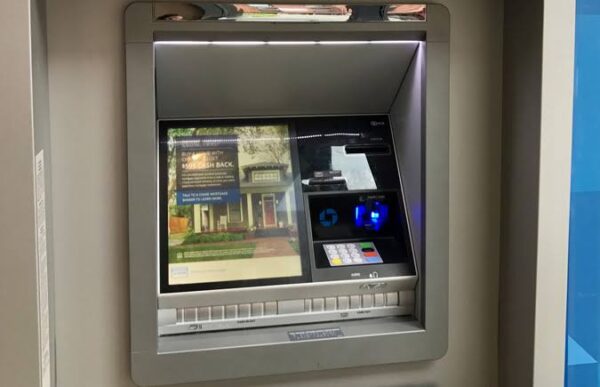
Using an out-of-network ATM is a budget buster that you don’t know can hinder your savings goal. Each withdrawal from an ATM can cost up to a few dollars, and these fees can sneak up on you.
Even if the ATM is in a very convenient place, think about how $3 a week can add up to $156 over a year. That’s enough money for a nice dinner with a loved one or an extra deposit into a retirement account.
You might want to switch if your bank or credit union doesn’t have many ATMs that don’t charge fees.
25. Daily Coffee Run

We’re not just talking about the expensive lattes. A certified financial adviser, Nancy Fellinger, told USA Today that a small $3-a-day coffee habit adds up to $21 a week or $1,092 a year. If you put that $1,092 a year into something that gave you an average return of 7% over 10 years, you would have $15,087. So, buy a coffee machine to fix your coffee at home.
26. Accepting Every Social Call
Paypant.com says it’s great that you have a lot of social plans, but this is a budget buster for sure. Social activities can drain you every month and make it harder to save money.
Almost 40% of Millennials have taken out loans to keep up with their peers. And when you spend money on social calls that you don’t have to go to, you start to feel bad about it, and it’s hard to keep up with your savings.
Related: 40+ Fantastic Stay-at-Home Date Ideas
Two-thirds of Millennials wish they hadn’t spent more money on social events than planned. So why say “yes” when your money says “no”? They feel pressured to spend too much money and get into bad money habits because they are afraid of being left out of future activities, feeling like an outsider, losing friends, and being judged.
But once you figure out how much money these things cost you each month, you’ll know how to say no to some social activities with friends, especially if you’re on a budget.
27. Spa Sessions

A manicure or pedicure is the most relaxing thing you can do. But if you do these things often, they won’t be good for your wallet. A manicure costs an average of $20, while a pedicure costs an average of $32. So if a woman gets these things done every two weeks, it would cost her about $1,300 a year.
28. Making Minimum Credit Card Payments When You Can Afford More
If you can pay more on your credit card bills or even pay off your balances in full, not doing so is a big budget buster that can stop you from saving money.
By only making the minimum payments and carrying a balance from month to month, you end up paying a high rate of interest, and your credit card balances can quickly grow. So, it will be harder for you to make a reasonable budget.
High-interest debt adds up quickly and can get out of hand, making it harder to reach your savings goals.
Pay off the debt with the highest interest rate first if you owe money on more than just your credit card. “If the interest rate is in the double digits, you might want to pay more than the minimum to get rid of your debt faster,” If you can’t pay more than the minimum, pay what you can on time.
29. Purchasing Single-Use Products
When we go to the store, most of us buy a lot of things that only need to be used once. But these kinds of single-use goods can be expensive.
Disposable Utensils burst your budget.
Disposable utensils, which come in single-use plastics, are unnecessary. You can now buy biodegradable, wooden, and other compostable utensils, which are better than plastic ones. However, unless you’re having a big party or event, you probably don’t need to use disposables.
Keep a fork, knife, and spoon from home wherever you need them, like in the office or in your purse. Or buy a cheap set of cutlery that you can use again and again. Make sure to tell your favorite restaurants not to give you a disposable set when you order food to go.
Paper towels are another such thing. I like paper towels. They don’t cause any trouble. But if you haven’t noticed before, they are costly. If you buy a six-pack of “mega rolls,” it will likely cost you at least $20. So instead, your wallet and the environment should use dish towels that can be used more than once. I haven’t changed yet, but I know I probably should.
Single Use Coffee Pods bursts your budget.
But paper towels aren’t the only bad thing. Single-use coffee pods are like paper coffee cups’ evil brother or sister. How many of us buy coffee every day on the way to work? Even if you only get one coffee from a coffee shop once a week, that’s 52 disposable cups you’re throwing away in a year.
There’s no reason not to bring a reusable coffee mug with you when you buy coffee to go these days. They don’t cost much, and many cafes that care about the environment now give discounts to customers who bring their mugs.
There are cheaper and greener alternatives to many other single-use items. For example, you should buy a filter rather than buying water in bottles. Instead of buying razors, you have to throw away, buy one that will last.
With just one trip to the grocery store, you’ll see how many single-use items can be replaced with things that can be used more than once.
30. Delivery Services
DoorDash and Grubhub have changed the way we get food. But have you ever thought about how much you pay for these services compared to what you would pay at a restaurant?

When you order food through DoorDash, you’ll pay a delivery fee, a service fee, a tip for the driver, and more. It’s easy to spend an extra $10 on each order because of the fees (before tip). If you do that once a week, that’s an additional $40 per month in fees.
Even though these services are convenient, you should just get your takeout order. It will be much cheaper and faster than ordering food online.
How to Avoid the Budget-busters That Kill You Financially
These are not just what to avoid, but money hacks to help you navigate your finance and reach your budget goals.
1. Be kind to yourself.
A budget is a kind of like going on a diet. How often have you known someone who started a diet with so many rules that she just gave up? A budget can do the same thing. It probably won’t last long if you start with a budget that doesn’t leave any money for fun or extras. Be reasonable, and enjoy life. Just keep in mind how vital moderation is.
2. Know the Difference between necessity and options
Many of us think that what we need is what we already have, plus about 20% more. The truth is that we need clothes, food, and a place to live. Everything else can be talked about. To make a Personal Financial Freedom Plan that works, we need to know the difference between what we want and what we need.
3. Don’t have too much hope.
Remember that things usually cost more than we think they will. Murphy’s Law says that bad things tend to happen at the worst times. I always choose to be on the safe side. Learn to overestimate your costs instead of underestimating them. This is an excellent way to keep from getting a nasty surprise.
4. Don’t spend too much or too little.
One crucial part of being good with money is knowing how much to spend on what. We recommend the following:
- Entertainment & Fun: 5%
- Credit card Debt: 5-8% (or less if possible)
- Saving/Investing: 5-15%
- Medical/Health/Dental: 5-8% (This might not be as easy to control as other things.)
- Housing (including mortgage, insurance, taxes, utilities, repairs/maintenance, and related expenses) should not exceed 25-33% of your “true net income.”
- Food: 10-15%
- Clothing: 5%
- Transportation: 15 percent (this includes the cost of the car, maintenance, insurance, gas, and legal fees).
Bottom Line
While it may seem straightforward to limit your everyday spending, minor daily splurges are often absolute and complete budget killers.
To avoid the pitfalls of overspending, begin by tracking the small expenses that add up rapidly, then progress to tracking the large expenses. Consider your options carefully before adding additional loans to your payment schedule, and remember that being able to make a payment does not imply being able to afford the purchase.
Finally, make saving a portion of your earnings a monthly goal and spend time building a solid financial strategy. Budgeting does not have to be complicated. Don’t miss these 21 Ways to Make budgeting fun.
Frequently Asked Questions
Q: What are the five common budget busters?
The top 5 budget busters are:
- Car Repairs
- Home Repairs
- Birthdays and Holidays
- Vacations
- Health and Pharmacy
Q: What is the big waste of money?
Certain purchases are a waste of money since they charge too much for something that can be obtained with much less money. It makes you purchase more than you expected. You may be duped into purchasing something you don’t genuinely desire or need, but living over your means is the largest waste of money.
Q: Which is an example of something that can be a budget buster?
Cable Television is an example of a budget buster. Cable TV can be a big budget-buster because it costs anywhere from $60 to $100 per month to subscribe. As a result, you can save a lot of money annually by getting rid of your cable TV bill. Removing your cable can save between $720 and $1,200 a year.
Q: What is the most challenging part of budgeting?
Indecisiveness is one of the most challenging budgeting obstacles, but you can overcome it with a little financial determination. There are a few options for dealing with financial indecision.
Q: What items are a waste of money?
Some items that are a waste of money are:
- Buying brand-name products
- Paying someone else for simple car repairs
- Grocery shopping when you’re hungry
- Buying a snack at the gas station “every now and then.”
- Taking expiration dates as law
- Paying for cable
- Only using credit/debit cards
Q: What do you think is the main problem in budgeting?
Budgeting has several major issues, including trickery, the extra effort necessary to prepare budgets, and budgeting inaccuracy. The budgeting issues are more specifically listed below.
Q: What stops people from budgeting?
Below are five excuses people commonly use to get out of budgeting:
- “Budgeting Takes Too Long”
- “I Don’t Have Enough Money to Budget.”
- “I Don’t Like Tracking My Spending.”
- “My Spouse Isn’t on Board.”
- “Budgeting Makes Me Feel Bad”

